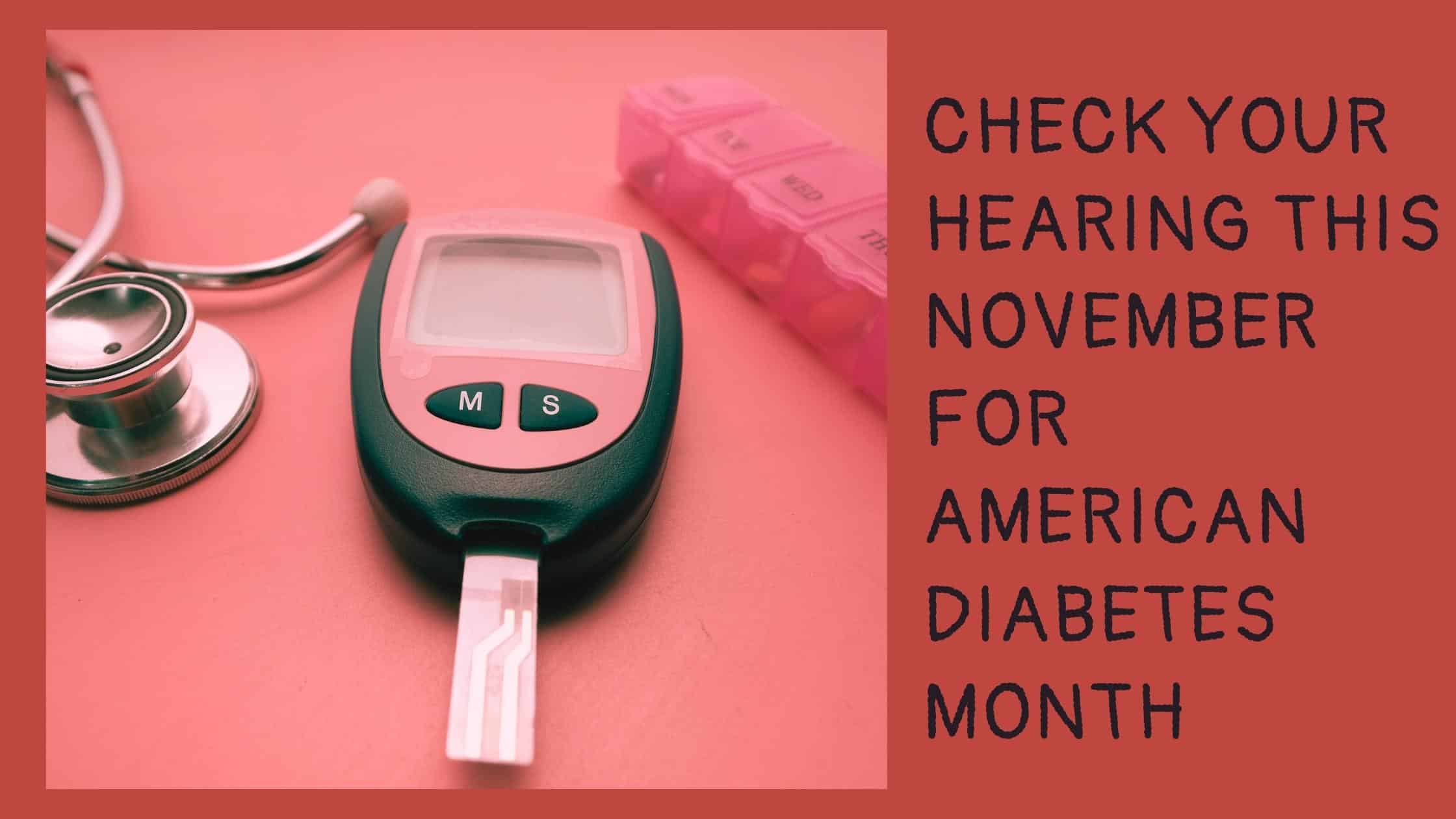Did you know November is American Diabetes Month? A life-long condition that impacts over 34 million people in the U.S, diabetes is a pervasive health issue. If you have diabetes or are prediabetic, it is important to also protect your hearing health. People with diabetes can be more than twice as likely to experience hearing loss, a recent study shows.
Impact of Diabetes on Hearing Health
Research establishes a link between diabetes and hearing loss – chronic medical conditions that are permanent. Studies reveal that diabetes can substantially increase the risk of developing hearing loss. This includes a 2008 study conducted by researchers at the National Institutes of Health. To evaluate this link, researchers analyzed data provided by a national survey that included information from hearing test results as well as a diabetes questionnaire for 11,405 people (ages 20-69). Researchers found that among people with diabetes:
- 54% had high-frequency hearing loss compared to 21% of people without diabetes.
- 21% had mid-frequency hearing loss compared to 9% of people without diabetes.
These findings highlight that people with diabetes were more than twice as likely to have mid-frequency hearing loss. In explaining how these conditions are correlated, researchers suggested that because diabetes is already known to damage blood vessels, this could include the small blood vessels in the inner ear. The inner ear is responsible for translating incoming sound waves into electrical signals that are carried to the brain to be further processed and assigned meaning to which is what enables us to understand what we hear. Damaged blood vessels can reduce the inner ear’s capacity, preventing this critical function from being carried out and causing hearing loss.
Signs of Hearing Loss
Hearing loss is an invisible medical condition that usually occurs gradually so people may not notice changes to their hearing health for quite some time. This often contributes to a delay in treatment, making hearing loss an underdiagnosed health issue. Knowing and paying attention to the signs of hearing loss can help you intervene early which can profoundly help transform your hearing health. Common symptoms of hearing loss include:
- Tinnitus: a buzzing or ringing-like noise in one or both ears (when there is no external sound present).
- Sounds are muffled or slurred, blending together and making it difficult to identify individual words.
- Increasing the volume on the television and other electronic devices.
- Frequently asking others to speak louder, slower, and/or repeat something they’ve said.
- Experiencing difficulty hearing in environments with background noise, during conversations with multiple people, in social settings, etc.
- Missing words during a conversation or experiencing miscommunication.
- Finding yourself lip reading to distinguish words and help follow what someone is saying.
These symptoms can really take a toll on communication which is a major way we navigate daily life. Strained communication has multifaceted effects including impacting relationships, social engagement, work performance, leading to social withdrawal, and affecting mental health. Being proactive about your hearing health can drastically reduce your risk of developing hearing loss which is particularly important for people who have diabetes.
Get Your Hearing Tested Today
The first step you can take to prioritize your hearing health is simple: getting your hearing checked. Hearing tests are conducted by hearing healthcare experts, like audiologists, who specialize in diagnosing and treating all issues related to hearing and balance. Hearing exams involve a painless process that includes speech and sound tests. Known as pure tone and speech audiometry testing, these tests involve listening to sounds and indicating what you can hear. This measures the softest sounds you are able to detect and process, known as your hearing threshold. Establishing this information reveals any hearing impairment and the degree of impairment you could be experiencing in each ear.
Once your hearing needs are established, your hearing healthcare provider is then able to recommend treatment options that will effectively meet your needs. The most common treatment for hearing loss is hearing aids. These are medical instruments that are designed to absorb, amplify, and process sound. Providing the auditory system with ample support, hearing aids maximize hearing capacity. Similar to most electronic devices today, hearing aids have experienced significant innovation and are more advanced than ever. Today’s devices offer numerous features and technologies that allow them to easily integrate into daily life. Hearing aids not only enhance hearing but also strengthen cognitive capacities, improve relationships, and enrich social activities and overall quality of life.
This month is a great reminder to be proactive about your health. You can do this by calling us to schedule an appointment for a hearing test!

